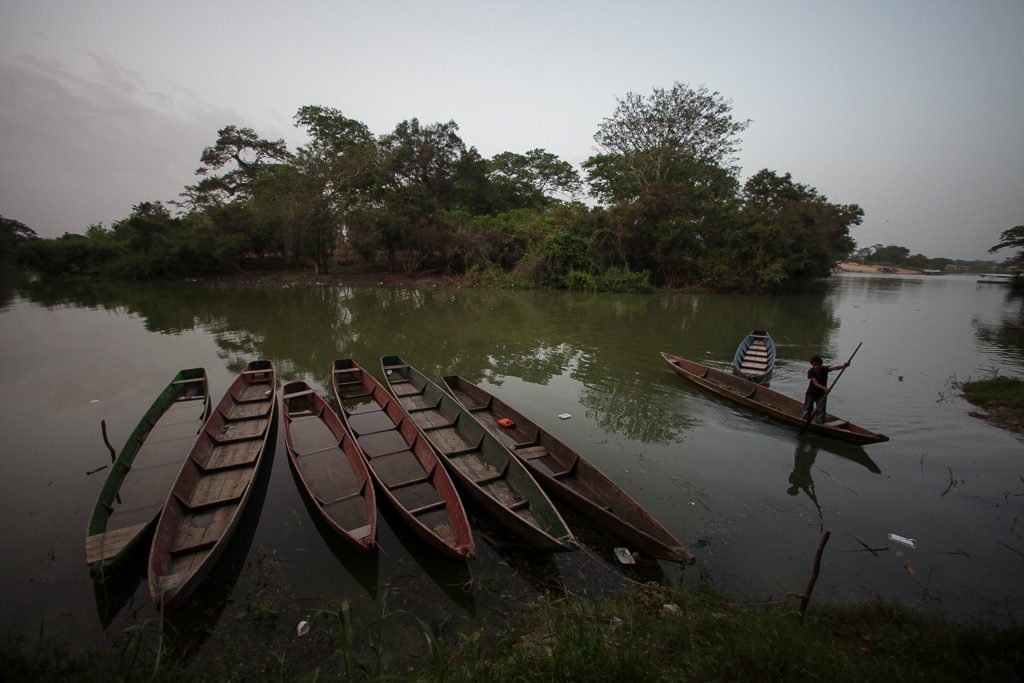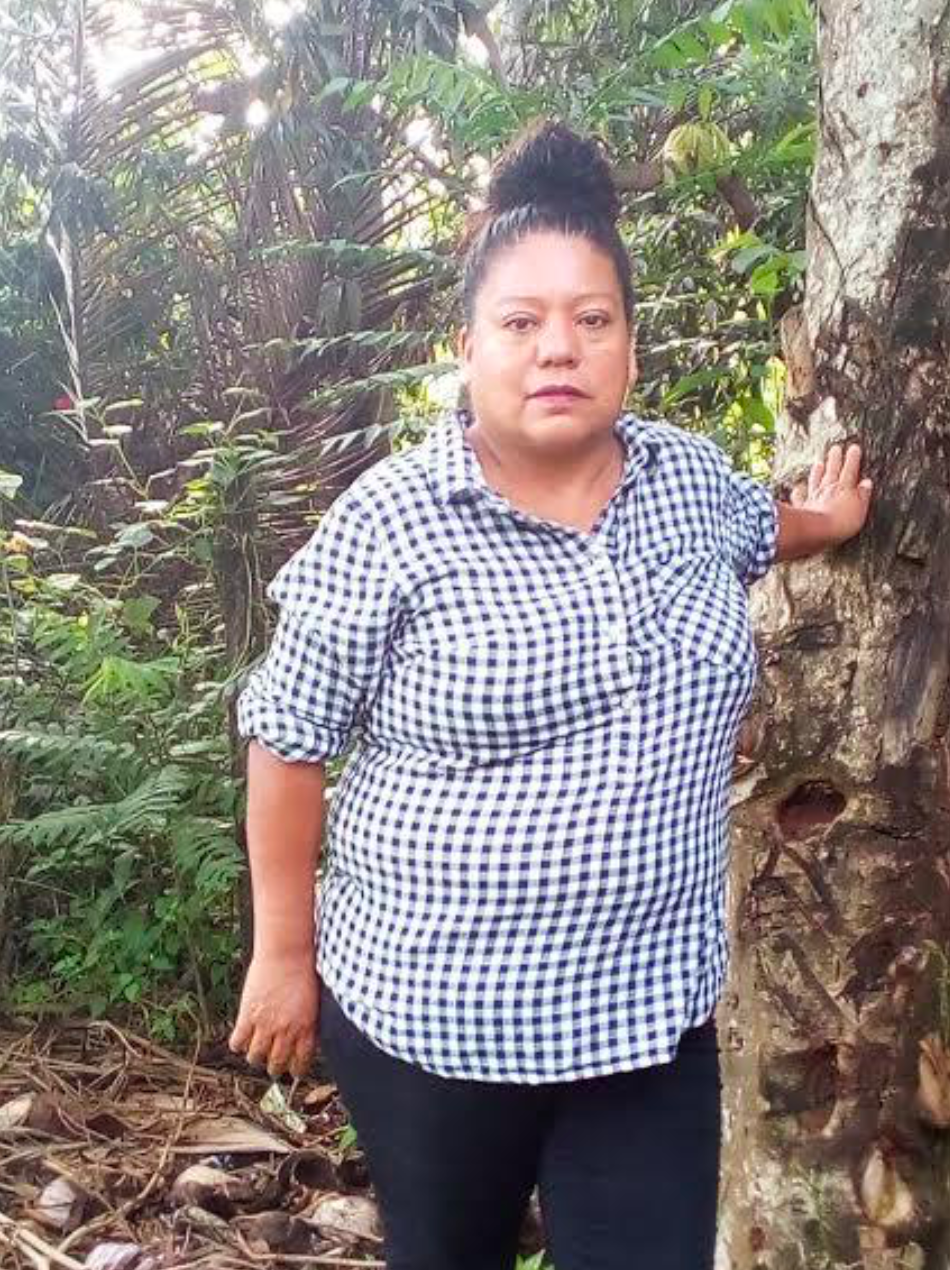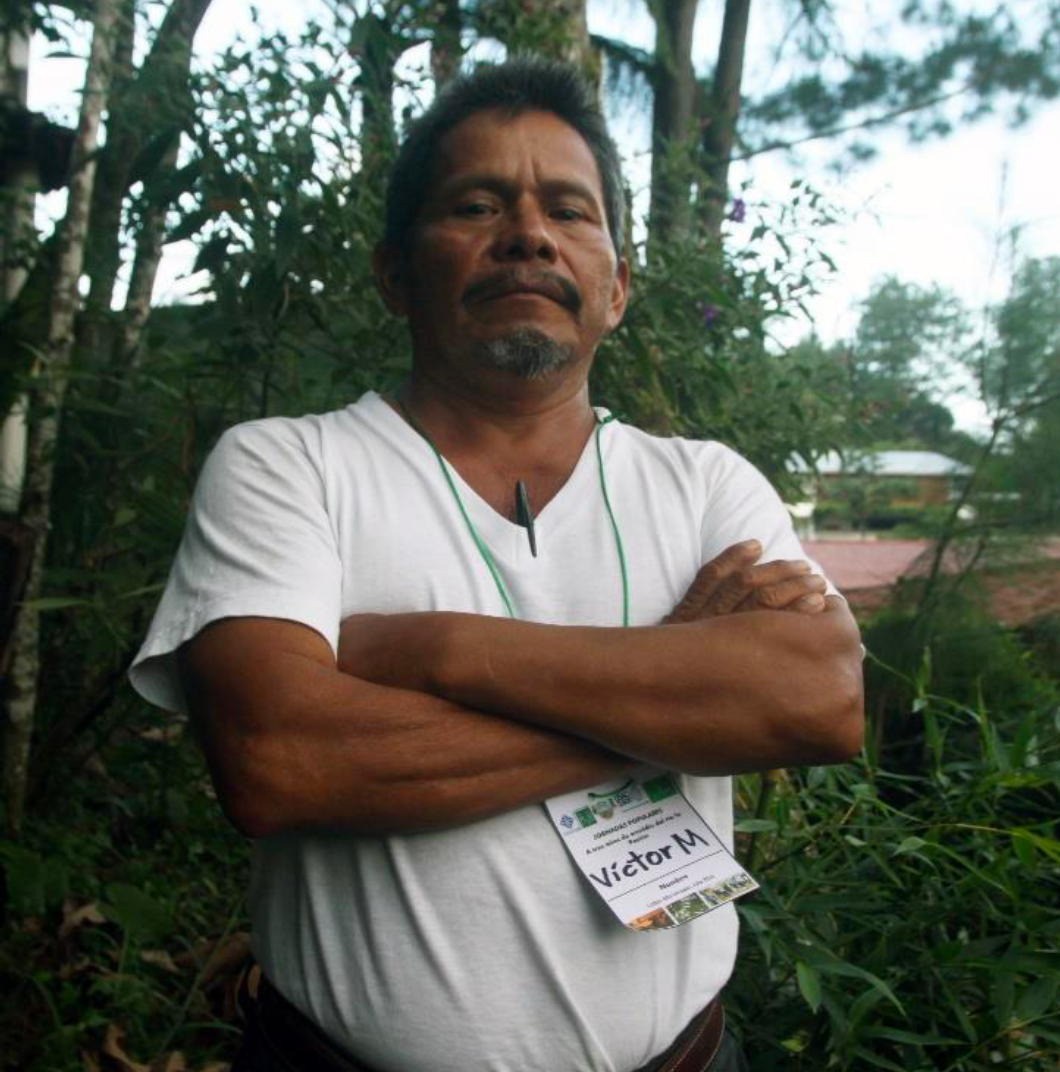- Blog
- Forests
- Land Grabbing, Forests & Finance
- Three Years Since the Ecocide in the Río Pasión, Guatemala, Communities Still Struggle for Justice
Three Years Since the Ecocide in the Río Pasión, Guatemala, Communities Still Struggle for Justice
by Jeff Conant, senior international forests program director

Donate Now!
Your contribution will benefit Friends of the Earth.
Stay Informed
Thanks for your interest in Friends of the Earth. You can find information about us and get in touch the following ways:
In the summer of 2015, a massive spill of toxic palm oil effluent overflowed into Río La Pasión, or the Passion River, a long, meandering river that runs through the tropical lowlands of the Petén region in northern Guatemala. For over a week, the surface of the river was carpeted with dead fish for 100 miles, devastating the health and food security of the Q’eq’chi Mayan communities living alongside it. These communities mounted an organized protest, forming themselves into a community-based organization to demand justice and restoration of their river.
In September of that year, the communities filed a legal case against REPSA (Reforestadora de Palma de Petén), the palm oil company deemed most likely to be responsible for the spill. A precedent-setting decision ruled that the event was “ecocide,” and a court ordered REPSA to suspend operations — but the company overturned the verdict and continued operating.
After one of the lead plaintiffs for the affected communities was shot and killed, Friends of the Earth and others stepped in and launched an international campaign that, two years later, succeeded in pressuring several multinationals — Cargill, Wilmar International, PepsiCo and Nestle — to end their business relationships with REPSA.
But on the ground in Guatemala, the victims of the ecocide continue to demand justice. This July, three years after the Passion River ecocide, affected communities gathered together in northern Guatemala to share their stories and pursue their cause. Their struggle for justice is particularly dangerous in a country where human rights defenders are being killed, in the words of Amnesty International, “on a terrifyingly regular basis.” The U.N. Office of the High Commissioner for Human Rights recently decried Guatemala’s “deteriorating climate for the defense of human rights” after three indigenous leaders were murdered this spring — bringing the number of killings of human rights defenders in Guatemala to 14 this year.
The danger facing critics of the palm oil industry is particularly high, as the industry appears to have deep ties to narco-trafficking and money-laundering — and even international conservation efforts appear bent on controlling disputed territories without fully considering the needs of the region’s most affected communities.
Here are a few of their stories, documented by Congcoop, a Friends of the Earth partner who organized a series of events to mark the third anniversary of the Passion River ecocide:
María Margarita Hernández de Herrera, a 45-year-old Q’eq’chi Mayan woman, lives with her husband and three children in the village of Canaán, in Sayaxché, Petén.

How does the palm industry affect your access to food and water?
This is the most difficult thing for a community that lives surrounded by plantations, because we’ve lost the lands where we used to cultivate our crops; and with the contamination of the river, we can no longer fish and prepare the catch alongside the river to eat with our beans. The entire environment is contaminated because now we have constant infestations of flies in our food, on our fruits, so we have to take special care that the children don’t get sick. We see that the color and the smell of the river has changed; our water sources have diminished; and when we wash our clothes and bathe our children in the river, we get skin lesions, diarrhea, nausea.
Yes. The production of African palm brings malnutrition and extreme poverty to the communities because once they’re established, the little bit of money they bring to the villages is spent on phone bills, fried food, alcohol, soft drinks and the men who work on the plantations neglect their family responsibilities. Besides this, the companies destroy our homes and violate our rights to food security and to freedom of movement.
What is life like in your community since the Passion River ecocide of 2015?
Everything changed. It’s been very painful to see on a daily basis the huge number of dead fish, testimony to how the palm oil companies destroy our daily subsistence. Before the ecological disaster, we organized campfires and candlelight gatherings along the river, we grilled fish and turtles and had great feasts. Since the disaster, nobody goes near the river for fear of getting skin lesions and digestive illnesses.
How do you live since the fish kill in the Passion River?
It’s painful when we see great quantities of dead fish in our river, and how the companies devastate our livelihoods. We’re tormented by the pestilence that emanates from the river, our weekend fiestas, early morning fishing and cooking at the edge of the river, all of our customs destroyed because noboady wants to go near the river anymore. Beyond that, we feel frustrated when we see that there’s no justice and these companies keep polluting the river even three years after the ecocide.
Víctor Maas Paau, 53 years old, lives in the village of San Francisco El Tumbo, Sayaxché, Petén, on the edge of the Río Pasión, together with his wife and four children.

Three years after the disaster in the Río La Pasión, what is your life like?
We live with all kinds of sickness of the skin, of the stomach, water contamination and loss of our daily source of sustenance because of the chemical spill in our river. Diarrhea, infestations of flies, and the terrible smells from the palm oil waste make our lives difficult, forcing us to take constant care of our health, and especially the health of our children.
What does the Passion River signify to you and your family?
The river is essential for our lives, for the plants, the animals, the fish. It’s the source of life, of our fishing economy which has allowed us to buy and sell most of what we need to live.
What are you asking of the government of Guatemala?
That they do more to advance the lawsuit to make REPSA take responsibility for the disaster: first, that they desist from contaminating the river with industrial wastes. That they repair the roads that their trucks have destroyed. That they build waste treatment plants to stop the spread of flies, rats and other pests that affect the health of our children. And above all, that they respect the human rights of all of us who have been made vulnerable by the company to the permanent contamination of our river.
As these brief testimonies show, the struggle against palm oil plantations in Guatemala is not only about protecting forests, though it is about that as well. It is a struggle for food sovereignty, for water, for land and for human rights.An article from the Guatemalan news site Nomada covering the third anniversary of the Passion River ecocide notes that palm oil-affected communities have three broad demands:
- That the expansion of palm plantations in the region be categorically halted.
- That the lands now used for palm plantations be converted to crops that don’t harm the environment. “They’ve caused enough damage and earned enough money and now it’s time for them to go,” said one resident of Sayaxché who lives downstream from the plantations.
- That justice be carried out. Saul Paau Maas, a spokesperson for the impacted communities, said, “We want to see the investigation that began in 2015 advance; we want to know who was responsible for the 2015 events, and we want them to repair the damage.” (See a video of Paau speaking at a Friends of the Earth event, here.)
Following a series of public events organized by palm oil-affected community groups this July, Guatemalan civil society groups plan to step up a regional campaign to boycott palm oil companies associated with human rights violations and to build a regional network to defend the lands and people most directly affected by the plantation economy.
Header image via Carlos Sebastián, Nomada
